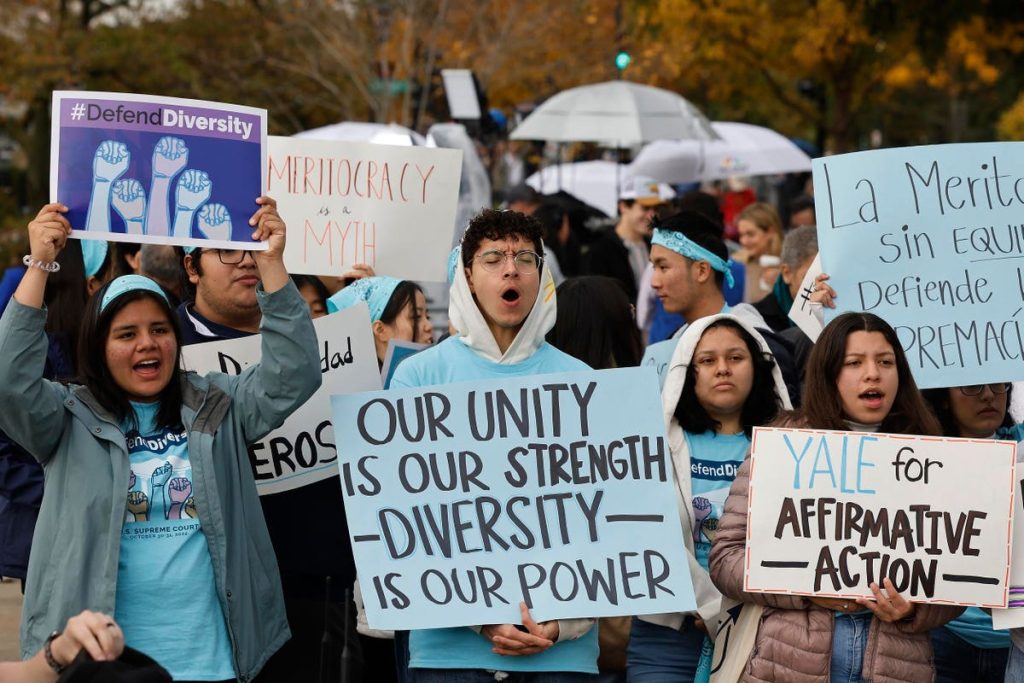The Supreme Court ruled in favor of Students for Fair Admissions (SSFA) in their case against Harvard University and University of North Carolina, effectively ending race-conscious admissions in U.S. colleges and universities. As the landmark decision sent shockwaves throughout higher education, universities insisted that they would comply with the Court’s ruling while finding ways to preserve diversity within their campus communities.
In order to do so, institutions seem poised to place greater emphasis on the personal essay in the review process, as a component of the application in which students may choose to disclose their race as a part of their story. In a press release regarding the decision, Harvard University noted: “The Court also ruled that colleges and universities may consider in admissions decisions “an applicant’s discussion of how race affected his or her life, be it through discrimination, inspiration, or otherwise.””
The quotation (taken from Justice Roberts’ majority opinion) also reflects a point that was discussed at length during oral arguments in October. Patrick Strawbridge, the lawyer for SSFA, emphasized that in the absence of the Common App’s “race box,” applicants could use the personal essay to convey information about how their race has shaped who they are. Strawbridge stated: “the reason why race may have some contextual relevance when you’re evaluating an essay, right, a story about—about being subjected to racial discrimination obviously indicates that the applicant has grit, that the applicant has overcome some hardship. It tells you something about the character and the experience of the applicant other than their skin color.” He argued that in the case of the essay, the disclosure of race would be acceptable because it is connected to the applicants’ character and background rather than acting as a standalone factor.
However, the additional weight placed on the personal essay—as well as its use as a covert disclosure of students’ race—could have overwhelmingly negative implications, and institutions should consider the potential impact on students before regarding any one piece of the application as a loophole in the Court’s ruling.
Students have long felt the pressure to share stories of emotional hardship and comment on how their racial or cultural background will enrich a school’s community in their college essays. Many schools’ supplemental essays ask students to reflect on their backgrounds, sexual orientations, and racial or cultural identities in conjunction with their candidacy. While many of these prompts are optional, applicants often feel the pressure to disclose emotionally charged or triggering information connected to their identity and experiences. Alexa Leon, a then-sophomore at University of Texas, wrote for The Daily Texan: “While the question is optional, some people may feel pressured to share their experiences because they were told their background will get them into college […] we cannot ignore the unspoken demand of exploiting our personal lives for the sake of getting into our dream schools.”
This expectation has also disproportionately fallen on students of color. Aya M. Waller-Bey notes in Forbes: “In analyzing hours of interview data, Black students attending both predominantly white institutions (PWIs) and historically Black colleges and universities (HBCUs) revealed that various social actors such as counselors, teachers, college access organizations, and private admissions counselors encouraged them to write about their trauma as opposed to light-hearted topics.” She further elaborates that the ubiquity of media depictions of Black students who have overcome significant trauma to get into elite schools influences students’ commonly-held belief that it is necessary to include such stories in their applications.
If colleges place greater emphasis on the essay in a post-affirmative action admissions landscape, students will face all the more pressure to share their racial trauma, describing and justifying their lived experience for the (predominantly white) eyes of admissions officers. As Harvard student Rebecca Cadenhead shares regarding her choice to write about her mixed-race identity in her essay: “I understood on some level that the level of meaning in this particular essay topic would appear greater to the white people who read it than it would to me.” In seeking to abide by the Court’s attempt to eliminate discrimination, schools may inadvertently exacerbate a more subtle and insidious version of discrimination and racial stereotyping.
In the wake of the ruling, political commentator Elie Mystal aptly shared on Twitter: “The argument that white folks are falling back on about how Roberts said race can still be mentioned in a college essay is annoying me for a number of reasons. Particularly: Why should a Black student have to WASTE SPACE explaining ‘how racism works’ to a white admissions officer.” Indeed, the onus is now on colleges and universities to ensure that students of color do not face such additional burdens as they pursue their collegiate dreams.
Read the full article here









